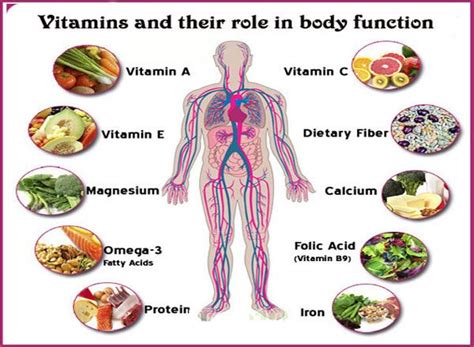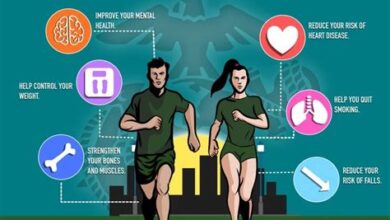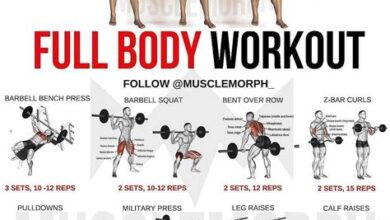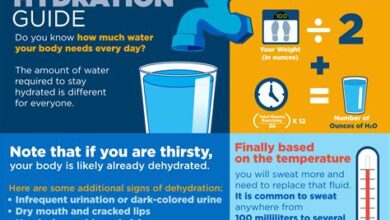The Role of Vitamins and Minerals in Physical Health

Discover the importance of vitamins and minerals, effects of deficiencies, role of minerals in muscle function, vitamin D’s impact on bone strength, and overall nutrition’s impact on physical health.In today’s fast-paced world, maintaining optimal physical health is more important than ever. A crucial aspect of achieving this is understanding the role of vitamins and minerals in overall well-being. Vitamins and minerals play a key role in our bodies, affecting everything from energy levels to muscle function and bone strength. In this blog post, we will delve into the significance of these essential nutrients and their impact on physical health. We will explore the importance of vitamins and minerals, the effects of vitamin deficiencies on health, the role of minerals in muscle function, the relationship between vitamin D and bone strength, and the overall impact of nutrition on physical health. By gaining a deeper understanding of the role of vitamins and minerals, we can make informed choices to support our body’s needs and maximize our physical health.
Importance of Vitamins and Minerals
In today’s fast-paced world, it can be difficult to maintain a balanced and nutritious diet. However, it’s important to prioritize the intake of vitamins and minerals as they play a crucial role in maintaining overall physical health. Vitamins are organic compounds that are essential for various bodily functions, such as metabolism and immunity. On the other hand, minerals are inorganic substances that aid in muscle function, bone health, and fluid balance.
One of the key reasons why vitamins and minerals are important is because they act as cofactors for enzymatic reactions in the body. This means they help in the conversion of nutrients into energy, support the immune system, and assist in the repair and maintenance of cells and tissues. Without an adequate supply of these essential nutrients, the body’s ability to function optimally is compromised, leading to an increased risk of various health issues.
Furthermore, vitamins and minerals are also crucial for preventing and managing chronic diseases. For instance, vitamin D is known for its role in promoting bone health and reducing the risk of osteoporosis, while minerals like iron aid in the production of red blood cells and help prevent anemia. Additionally, a deficiency in certain vitamins and minerals can lead to fatigue, weakened immunity, and poor cognitive function.
Effects of Vitamin Deficiencies on Health
When our bodies do not receive an adequate amount of vitamins, the effects on our health can be detrimental. Vitamin deficiencies can lead to a variety of health issues, impacting everything from our immune system to our skin and energy levels. For example, a lack of vitamin C can result in scurvy, characterized by fatigue, swelling and bleeding gums. Similarly, a deficiency in vitamin D can lead to weakened bones and an increased risk of fractures.
In addition to physical symptoms, vitamin deficiencies can also have an impact on mental health. For instance, a lack of vitamin B12 may cause memory loss and confusion, while inadequate levels of vitamin B6 can contribute to symptoms of depression and anxiety. These examples highlight the importance of maintaining proper nutrient levels in order to support overall well-being.
Overall, vitamin deficiencies can have a significant impact on our physical health, leading to a range of symptoms and potential long-term complications. It is essential to prioritize a balanced diet that includes a variety of nutrient-rich foods in order to prevent the negative effects of vitamin deficiencies on our health.
Role of Minerals in Muscle Function
Minerals play a crucial role in the proper function of muscles in the human body. One of the most important minerals for muscle function is calcium, which is essential for muscle contraction. When calcium levels are low, the muscles may not be able to contract effectively, leading to muscle weakness and cramping. Additionally, potassium is another essential mineral for muscle function, as it helps regulate muscle contractions and prevent muscle fatigue. Without an adequate intake of these minerals, individuals may experience decreased muscle function and performance.
Another important mineral for muscle function is magnesium, which is involved in muscle relaxation. Magnesium helps to regulate the balance of calcium and potassium in the muscles, allowing for proper muscle relaxation after contraction. A deficiency in magnesium can lead to muscle spasms and cramping, as well as decreased muscle strength. Therefore, it is important to ensure adequate intake of magnesium through diet or supplementation to support optimal muscle function.
In addition to calcium, potassium, and magnesium, other minerals such as sodium and phosphorus also play a role in muscle function. Sodium helps to regulate fluid balance and muscle contractions, while phosphorus is involved in the formation of ATP, the energy source for muscle contractions. Without a proper balance of these minerals, muscle function may be compromised, affecting overall physical performance and strength.
Vitamin D and Bone Strength
Vitamin D and Bone Strength
The role of Vitamin D in maintaining bone strength and overall physical health is crucial. Vitamin D is responsible for aiding in the absorption of calcium and phosphorus, which are essential minerals for bone health. Without an adequate amount of Vitamin D, the body is unable to effectively absorb these minerals, leading to weakened bones and an increased risk of fractures.
In addition to its role in bone health, Vitamin D also plays a part in regulating the immune system and reducing inflammation, further contributing to overall physical well-being. A deficiency in Vitamin D can result in conditions such as osteoporosis, rickets, and muscle weakness, all of which can have significant impacts on an individual’s physical health and mobility.
Ensuring that the body receives enough Vitamin D through sunlight, diet, or supplements is essential for maintaining strong and healthy bones, as well as supporting overall physical health and vitality.
Overall Impact of Nutrition on Physical Health
Overall Impact of Nutrition on Physical Health
When it comes to maintaining good physical health, the overall impact of nutrition cannot be overstated. Our bodies require a wide range of vitamins and minerals to function properly, and deficiencies in these essential nutrients can have serious effects on our well-being. A well-balanced diet that includes a variety of nutrient-rich foods is crucial for supporting overall physical health.
Nutrition plays a key role in maintaining a healthy immune system, as certain vitamins and minerals are necessary for optimal immune function. Inadequate intake of these nutrients can weaken the body’s ability to fight off infections and illnesses, leaving individuals more susceptible to getting sick. Additionally, a lack of essential nutrients can lead to decreased energy levels, poor muscle function, and impaired mental clarity, all of which can have a significant impact on physical health and overall well-being.
Furthermore, the overall impact of nutrition on physical health extends to the prevention of chronic diseases such as heart disease, diabetes, and certain types of cancer. A diet that is high in processed foods and added sugars can contribute to the development of these conditions, while a diet rich in whole foods such as fruits, vegetables, whole grains, and lean proteins can help reduce the risk of chronic disease and support long-term physical health.





